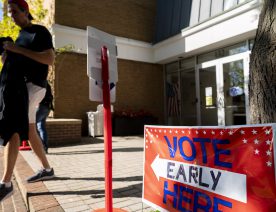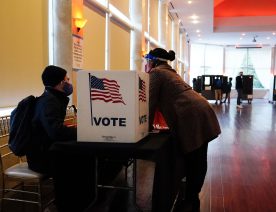
July 14, 2023
Confidence in U.S. democracy remains low. Half of the public feels democracy in the United States is functioning poorly. Few adults believe Congress, the Supreme Court, the president, or the political parties are doing a good job upholding the country’s democratic values. And most feel the interests of people like them aren’t being represented well. The public perceives a disconnect between public opinion and existing laws and policies on a range of issues from the economy to immigration to abortion to gun policy.
Half of adults say democracy is not working too well or not working at all. Forty percent think it is working somewhat well, and only 10% express an optimistic view of the U.S. democracy. Overall, there has been little change in the public’s view over the past few years regarding the U.S. democracy.
Most Republicans are negative about the state of democracy in the United States, while Democrats are more likely to believe democracy is working extremely or very well.
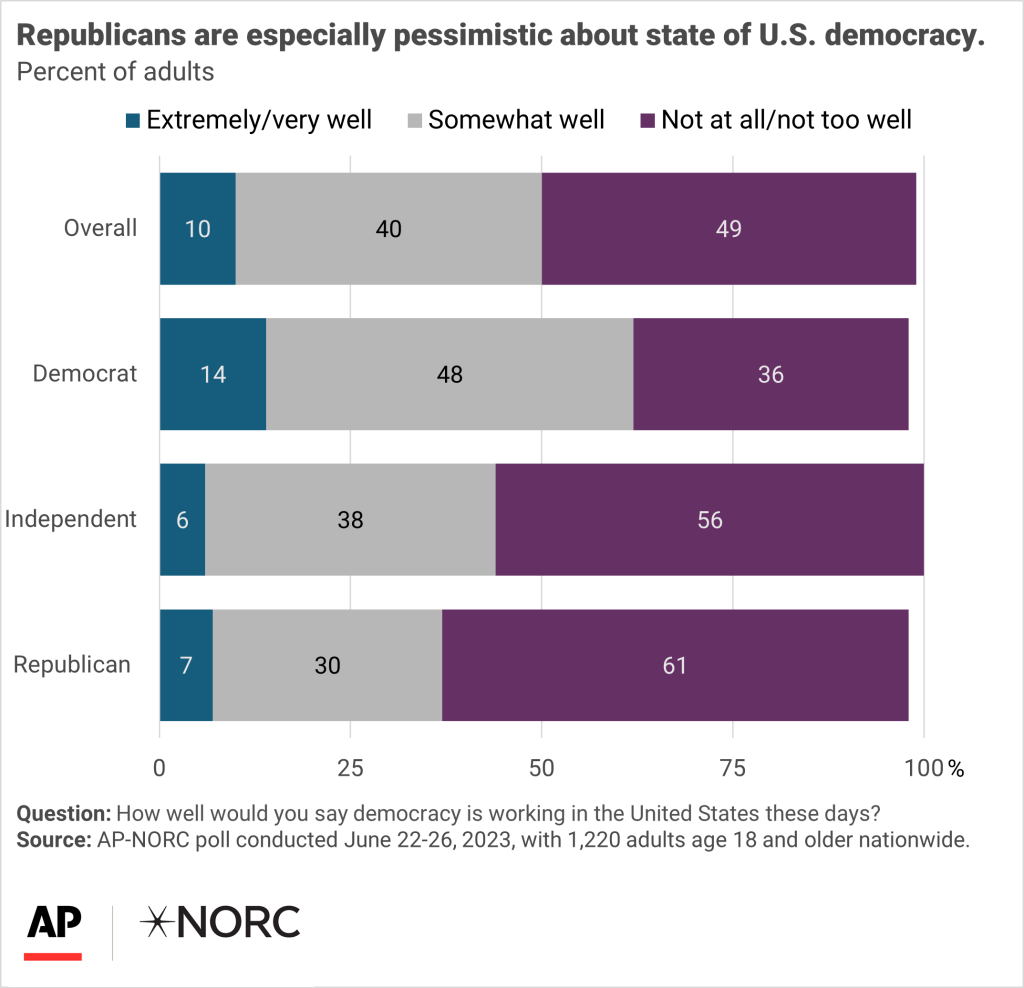
The public doesn’t see many advocates for democratic values in Washington either. About half say President Biden, Congress, and the Supreme Court are doing a bad job upholding democratic values.
These views are largely driven by partisanship. Six in 10 Democrats say Biden is doing a very or somewhat good job upholding democratic values whereas 4 in 5 Republicans say he is doing a very or somewhat bad job. Democrats are more likely than Republicans to rate the Supreme Court’s performance as very or somewhat badly. Few Republicans or Democrats think Congress is doing a good job.
About 8 in 10 Democrats say the Republican party is failing at upholding democratic values, and a similar number of Republicans say the same about the Democratic party.
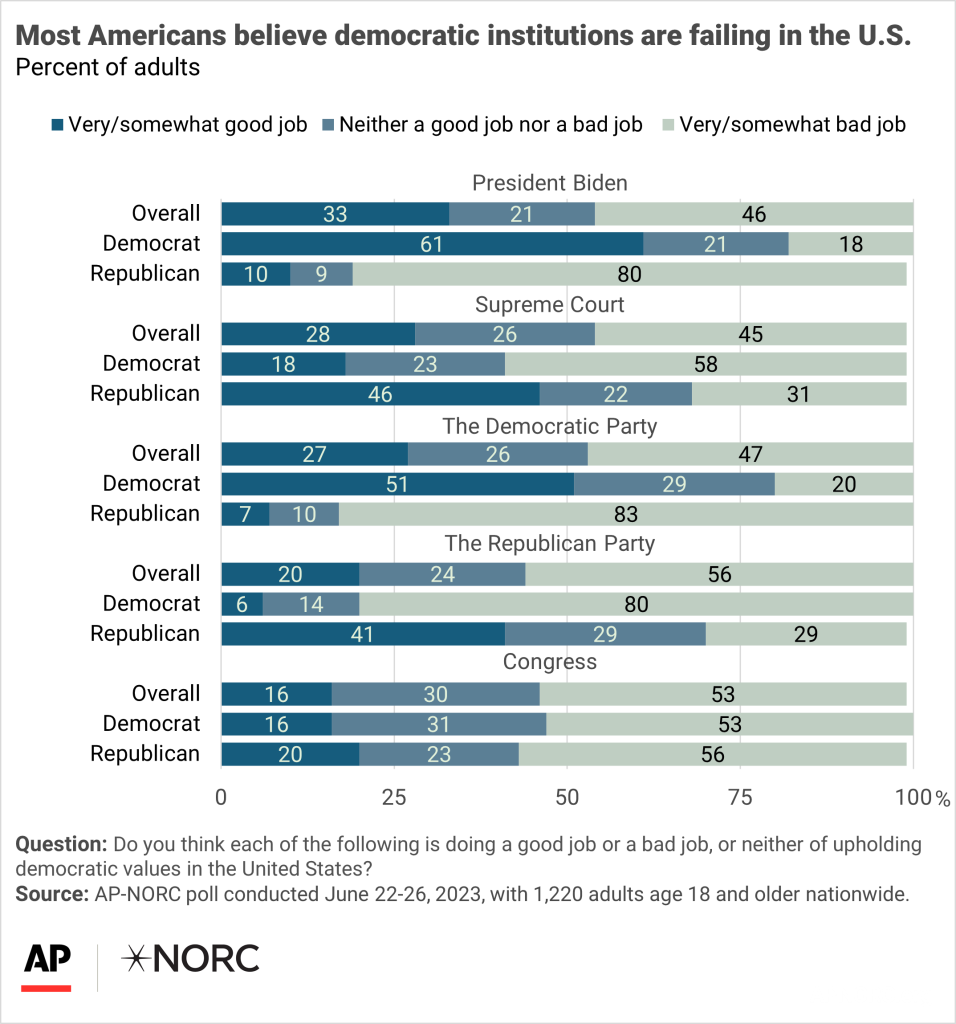
Most of the public questions whether the U.S. government understands their interests. Fifty-three percent feel that the interests of people like them aren’t being represented and 45% question whether most Americans interests are represented.
Republicans are more likely than Democrats to say the interests of most Americans (51% vs 38%) and people like them (60% vs 43%) are not represented well by the U.S. government.
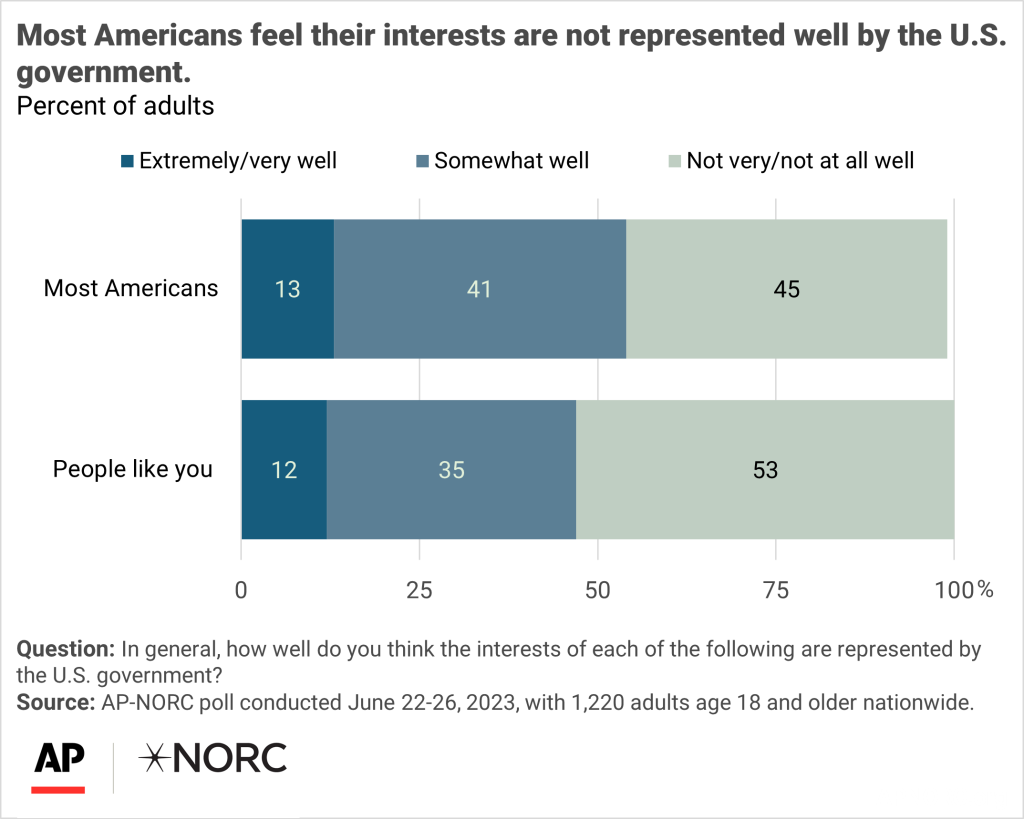
A large majority of the public say laws and policies on issues like abortion, immigration, gun policy, and government spending do not reflect the opinions of most adults.
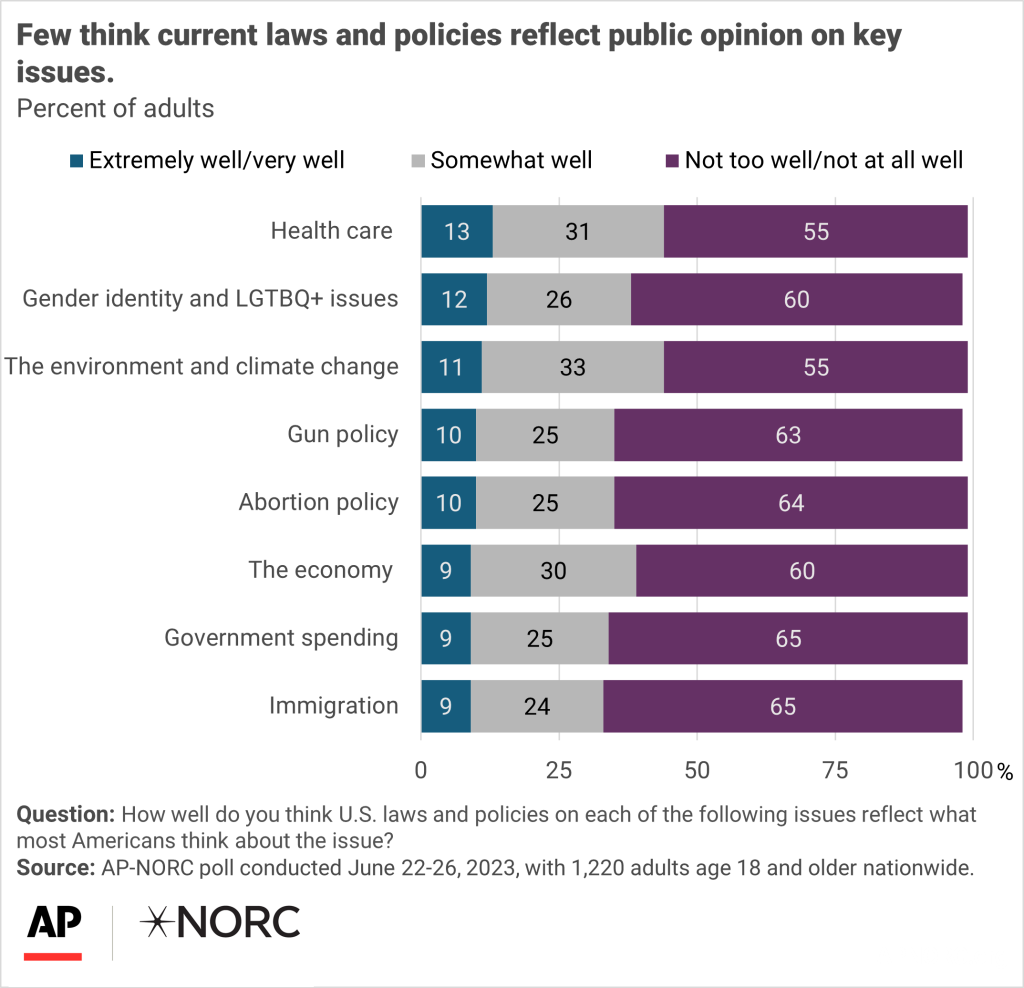
The public perceives a large gap between what factors should and what factors actually do influence U.S. laws and policies. Seventy-one percent of the public say that what most Americans want should be extremely or very important to the way laws and policies are made. However only 48% think Americans’ views actually have an impact. Nearly 70% of the public say that the constitution should be an important factor when making laws, including 83% of Republicans and 63% of Democrats. Only half of the public thinks the constitution is actually extremely important in the U.S. lawmaking process today.
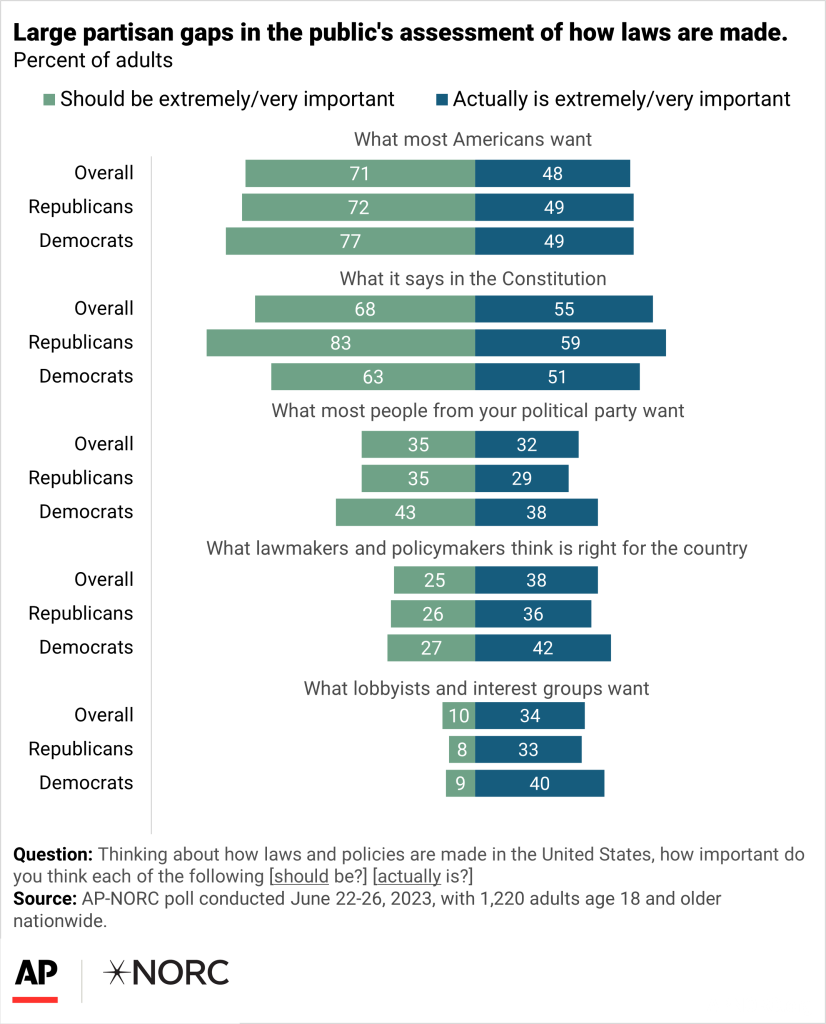
The nationwide poll was conducted June 22-26, 2023 using the AmeriSpeak® Panel, the probability-based panel of NORC at the University of Chicago. Online and telephone interviews using landlines and cell phones were conducted with 1,220 adults. The margin of sampling error is +/- 3.9 percentage points.
- Suggested Citation: AP-NORC Center for Public Affairs Research. (June 2023). “Most adults feel the interests of people like them are not well represented.” https://apnorc.org/projects/most-adults-feel-the-interests-of-people-like-them-are-not-well-represented/





